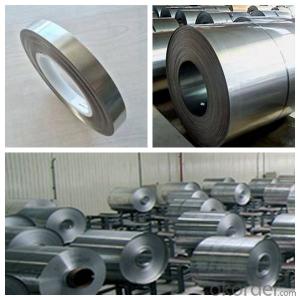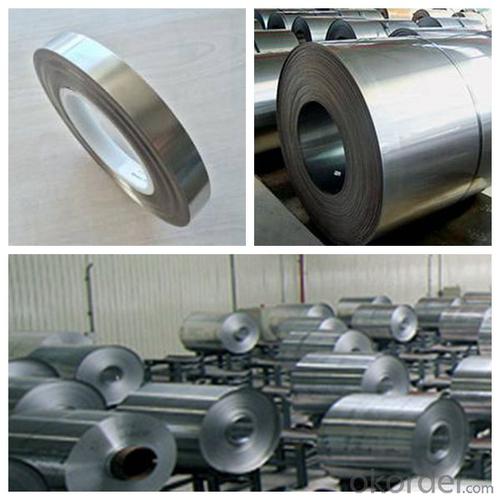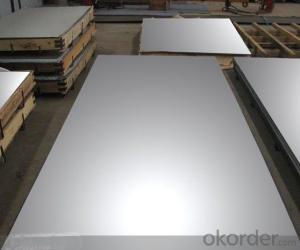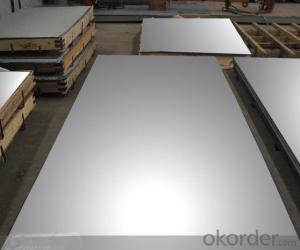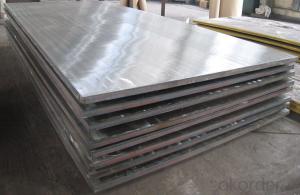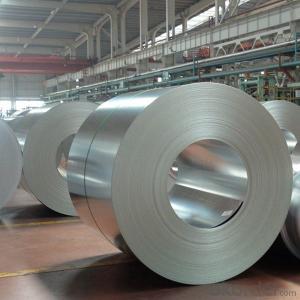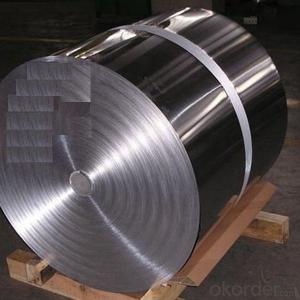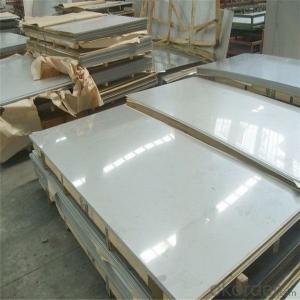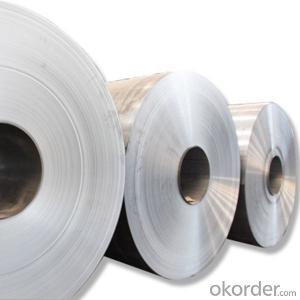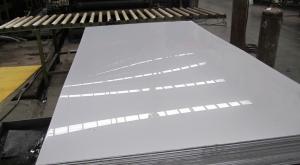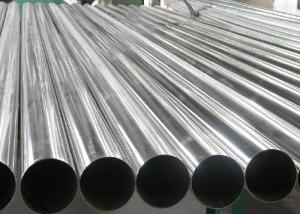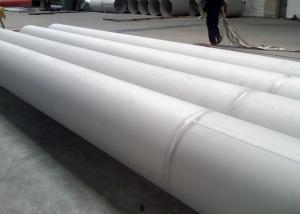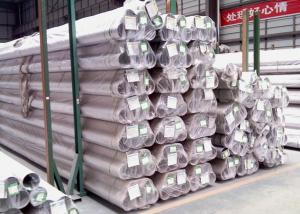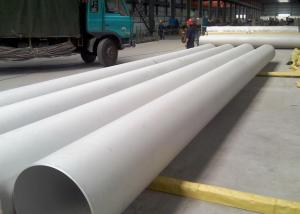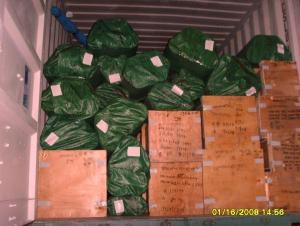Steel Stainless 304,Made in China For Good Quality
- Loading Port:
- Tianjin
- Payment Terms:
- TT OR LC
- Min Order Qty:
- 25 m.t.
- Supply Capability:
- 25 m.t./month
OKorder Service Pledge
OKorder Financial Service
You Might Also Like
Specification
Products Description for Stainless Steel Coils/Sheets:
Product | stainless steel coils/plates/sheets | ||
Discharge Port | Any Port, China | ||
Size | Coils | Cold Rolled: | Thickness0.3-8mm,Width:280-2100mm |
Hot Rolled : | Thickness3-14mm,Width:650-2100mm | ||
Plates | Thickness2-80mm,Width:1500-3000mm | ||
Coil Weight | About 20 Tons | ||
Grade | 201,202,304/304L/304H,316/316L/316H,321/H,310S,409/L,430 etc. | ||
Technique | Hot Rolled/Cold Rolled | ||
Finish | 2B, BA, 2D, No1, No2, No4,NO.8,SB etc | ||
Edge | Mill Edge / Slitting Edge | ||
Package | In bundles, or as customer's requirement | ||
Place of Origin | Made in China | ||
MOQ | 20 Tons | ||
Specifications for Stainless Steel Coils/Sheets:
Grade | C ≤ | Si ≤ | Mn ≤ | P ≤ | S ≤ | Ni ≤ | Cr ≤ |
201 | 0.12 | 0.75 | 7.00 | 0.045 | 0.045 | 1.00-1.28 | 13.70-15.70 |
202 | 0.15 | 1.00 | 2.25 | 0.045 | 0.045 | 4.07-4.17 | 14.00-16.00 |
304 | 0.08 | 0.75 | 2.00 | 0.045 | 0.03 | 8.00-11.00 | 18.00-20.00 |
304L | 0.035 | 0.75 | 2.00 | 0.045 | 0.03 | 8.00-13.00 | 18.00-20.00 |
309 | 0.15 | 0.75 | 2.00 | 0.045 | 0.03 | 12.00-15.00 | 22.00-24.00 |
310S | 0.08 | 1.50 | 2.00 | 0.045 | 0.03 | 19.00-22.00 | 24.00-26.00 |
316 | 0.08 | 1.00 | 2.00 | 0.045 | 0.03 | 10.00-14.00 | 16.00-18.00 |
316L | 0.035 | 0.75 | 2.00 | 0.045 | 0.03 | 10.00-15.00 | 16.00-18.00 |
321 | 0.04-0.10 | 0.75 | 2.00 | 0.045 | 0.03 | 9.00-13.00 | 17.00-20.00 |
405 | 0.08 | 0.75 | 1.00 | 0.045 | 0.03 | 0.06 | 11.5-13.5 |
409 | 0.089 | 1.00 | 1.00 | 0.045 | 0.05 | 0.06 | 10.50-11.75 |
410 | 0.15 | 0.75 | 1.00 | 0.045 | 0.03 | 0.06 | 11.5-13.5 |
420 | 0.16-0.25 | 1.00 | 1.00 | 0.040 | 0.03 | 0.06 | 12.00-14.00 |
430 | 0.12 | 0.75 | 1.00 | 0.045 | 0.03 | 0.06 | 16.00-18.00 |
Details for the products:
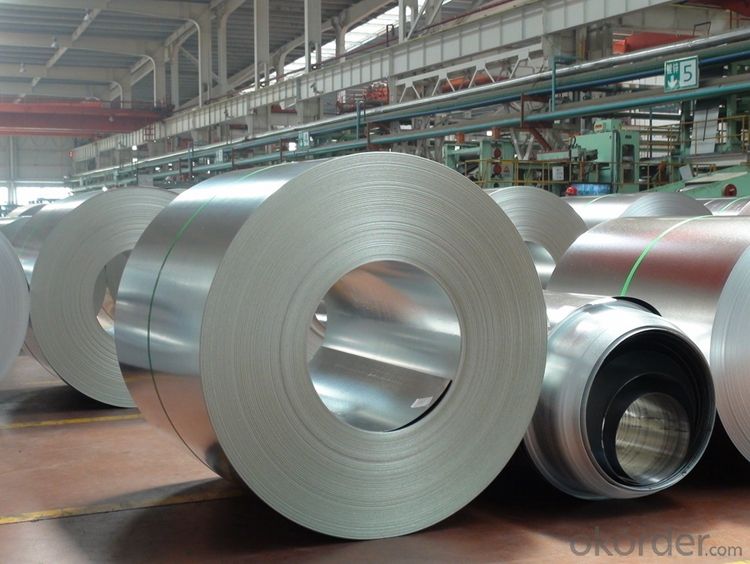
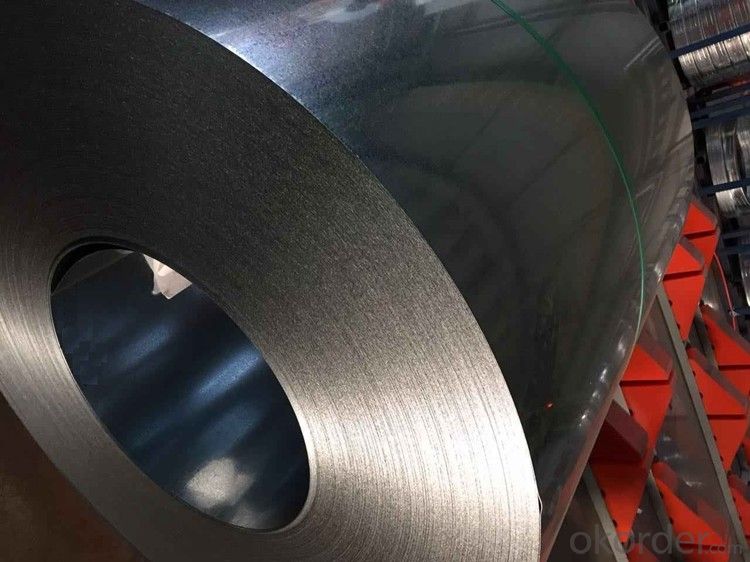
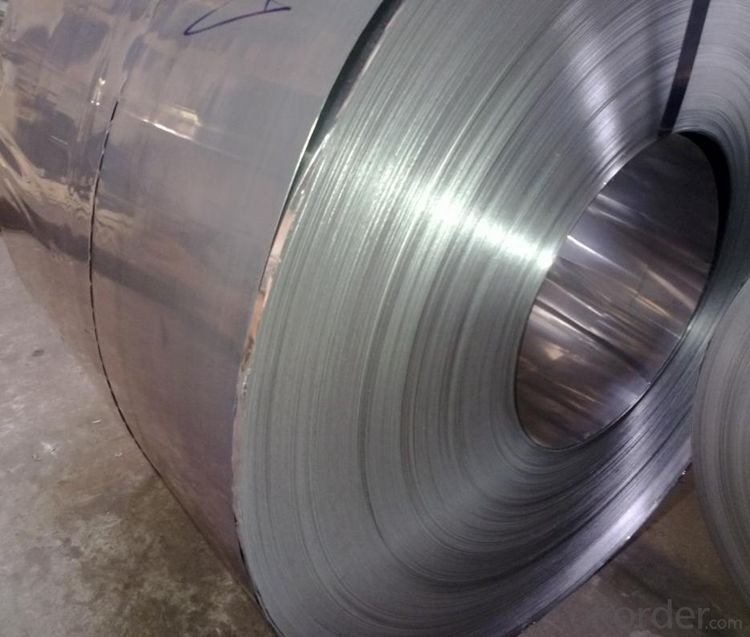
Features of Stainless Steel Coils
(1)Good ductility
(2)Good corrosion resistance
(3)Excellent abrasion resistance and fatigue strength
(4)Good weldability
(5)Oxidation resistant performance
(6)Excellent in high temperature
Our Service
1.High quanlity and reasonable price.
2.Customized on-demand.
3.Reasonable shipping and fast delivery.
4.Free sample.
FAQ for Stainless Steel Coils/Sheets:
Q: How long is the delivery time?
A: Normally 30-40 days, but mostly according to the specific requirements or the quantity
Q: Could you send me sample?
A: We can supply you with the sample for free, but the delivery charges will be covered by customers.
- Q: Are stainless steel sheets resistant to hydrochloric acid?
- Yes, stainless steel sheets are generally resistant to hydrochloric acid. Stainless steel is known for its high corrosion resistance, and it has been found to withstand a wide range of acids, including hydrochloric acid. However, the level of resistance can vary depending on the grade and composition of the stainless steel. In some cases, prolonged exposure to concentrated hydrochloric acid or high temperatures can cause corrosion or damage. Therefore, it is recommended to consult with a stainless steel specialist or refer to the specific stainless steel grade's corrosion resistance chart to determine the suitability of stainless steel sheets for a particular application involving hydrochloric acid.
- Q: Can stainless steel sheets be used for elevator mirrors?
- Yes, stainless steel sheets can be used for elevator mirrors. Stainless steel is a durable and corrosion-resistant material that can provide a sleek and modern aesthetic for elevator mirrors.
- Q: Are stainless steel sheets suitable for desalination plants?
- Yes, stainless steel sheets are suitable for desalination plants. Stainless steel is highly corrosion resistant, making it ideal for applications in saltwater environments. It can withstand the harsh conditions of desalination plants, including exposure to saltwater, high temperatures, and pressure. Additionally, stainless steel is a durable and hygienic material, making it an excellent choice for desalination plant components such as heat exchangers, pipes, and tanks.
- Q: Are stainless steel sheets suitable for roofing applications?
- Certainly, roofing applications can benefit from the use of stainless steel sheets. Stainless steel possesses qualities such as durability, corrosion resistance, and strength, rendering it an excellent choice for roofs. It exhibits remarkable tolerance to severe weather conditions like extreme temperatures, strong winds, and heavy rainfall. Moreover, stainless steel sheets possess fire-resistant properties, thereby enhancing the safety level of the roof. Furthermore, stainless steel boasts an extended lifespan, necessitating minimal maintenance and repairs. In summary, stainless steel sheets offer a dependable and enduring solution for roofing needs.
- Q: What are the common uses of stainless steel sheets?
- Stainless steel sheets have a wide range of applications due to their unique properties and versatility. Some of the most common uses include: 1. Construction: Stainless steel sheets are extensively used in the construction industry for roofing, cladding, and facades. They offer excellent durability, corrosion resistance, and a modern aesthetic appeal. 2. Automotive: Stainless steel sheets find applications in the automotive industry for manufacturing various components such as exhaust systems, grilles, trims, and decorative elements. Their resistance to heat, corrosion, and impact makes them ideal for these purposes. 3. Kitchen appliances: Stainless steel sheets are commonly used in the manufacturing of kitchen appliances like refrigerators, ovens, dishwashers, and sinks. Their hygienic properties, resistance to stains, and easy maintenance make them a popular choice for these applications. 4. Food processing: Stainless steel sheets are widely used in the food processing industry due to their non-reactive nature and ease of cleaning. They are used for making equipment such as storage tanks, conveyor systems, work surfaces, and food preparation tables. 5. Medical equipment: Stainless steel sheets are crucial in the manufacturing of medical equipment and devices. They are used for surgical instruments, dental tools, implantable devices, and hospital furniture due to their biocompatibility, corrosion resistance, and ease of sterilization. 6. Aerospace: Stainless steel sheets are utilized in the aerospace industry for constructing aircraft components like fuselage frames, engine parts, and landing gear. Their high strength-to-weight ratio, resistance to extreme temperatures, and corrosion resistance make them suitable for these demanding applications. 7. Energy and power generation: Stainless steel sheets are commonly used in power plants, oil refineries, and chemical processing plants for constructing equipment like heat exchangers, boilers, and storage tanks. Their ability to withstand high temperatures, pressure, and corrosive environments is essential in these industries. 8. Decorative purposes: Stainless steel sheets are also used for decorative purposes in architecture and interior design. They can be used to create unique and modern finishes on walls, ceilings, furniture, and decorative panels. Overall, stainless steel sheets are a versatile material used in various industries due to their exceptional properties like corrosion resistance, durability, hygienic properties, and aesthetic appeal.
- Q: Are stainless steel sheets suitable for medical implants?
- Yes, stainless steel sheets are suitable for medical implants. Stainless steel is commonly used in medical implants due to its excellent corrosion resistance, mechanical strength, and biocompatibility. It can be easily sterilized, is durable, and has a long track record of successful use in various medical applications.
- Q: How do you polish stainless steel sheets?
- To polish stainless steel sheets, you can follow a few simple steps. First, ensure that the surface is clean and free from any dirt or debris. You can use a mild detergent or stainless steel cleaner to remove any stains or marks. Next, use a soft cloth or sponge to apply a stainless steel polish or a combination of vinegar and olive oil. Apply the polish in the direction of the grain, which is usually a linear pattern on the surface of stainless steel. Once the polish is applied, use another clean cloth to buff the surface in the same direction as the grain. Apply gentle pressure and continue buffing until the stainless steel sheets start to shine and appear polished. If necessary, repeat the process in areas that require additional polishing, and ensure that all excess polish is wiped away to avoid streaks or residue. It is important to note that different stainless steel finishes may require specific polishing techniques or products. Always refer to the manufacturer's instructions or guidelines for best results.
- Q: Can stainless steel sheets be used for restaurant equipment?
- Certainly! Restaurant equipment can indeed utilize stainless steel sheets. Stainless steel is a highly favored option for restaurant equipment owing to its multitude of advantages. Its durability, resistance to corrosion, and ease of cleaning all contribute to its popularity. By employing stainless steel sheets, restaurant equipment can be crafted into diverse forms and dimensions, fulfilling the particular needs of countertops, sinks, tables, shelves, and food preparation surfaces. Moreover, stainless steel is an exceptionally hygienic substance that does not interact with food or taint it, rendering it perfect for deployment in restaurant environments where cleanliness and food safety are of utmost importance.
- Q: What are the different types of edge finishes for stainless steel sheets?
- There are several types of edge finishes for stainless steel sheets, including square edge, round edge, beveled edge, and rolled edge. Each of these finishes provides a different aesthetic and functional appeal, catering to different design preferences and project requirements.
- Q: What are the different types of punched finishes available for stainless steel sheets?
- There are several types of punched finishes available for stainless steel sheets, including round hole, square hole, slotted hole, and decorative patterns. Each type offers a unique aesthetic and functional purpose, allowing for customized designs and applications.
Send your message to us
Steel Stainless 304,Made in China For Good Quality
- Loading Port:
- Tianjin
- Payment Terms:
- TT OR LC
- Min Order Qty:
- 25 m.t.
- Supply Capability:
- 25 m.t./month
OKorder Service Pledge
OKorder Financial Service
Similar products
Hot products
Hot Searches
Related keywords
